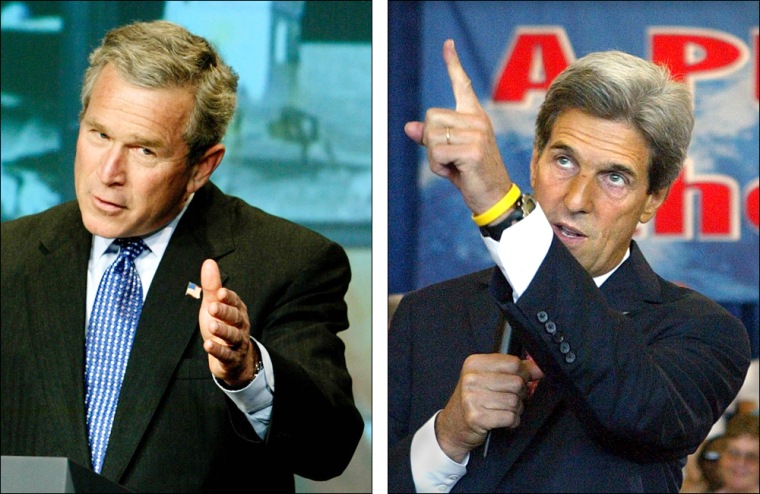It may not have had the global audience of the last Bush-Kerry debate, but about 100 members of the civil space community watched with rapt attention as representatives of the two campaigns conducted a spirited debate Thursday about the future of space.
Lori Garver, former NASA associate administrator for policy and plans, represented Sen. John Kerry. Frank Sietzen, an aerospace journalist, represented President Bush.
Kerry would adopt “a strong and balanced” approach between space exploration and other NASA missions, Garver told the gathering, sponsored by Women in Aerospace and the Washington Space Business Roundtable. Exploration, she said later in the debate, would be “but one goal among many.”
A Bush victory would offer “an unprecedented opportunity for change and new opportunities in space,” Sietzen said, stressing the Bush goal of returning to the moon by 2020 and planning a mission to Mars.
Much of the debate between Garver and Sietzen centered on the question of whether the vision for human and robotic space exploration outlined by Bush in January should dominate NASA’s future.
NASA faces “a huge risk we can lose what we have now if we do this one thing,” Garver argued. A Kerry administration, instead, would “probably” boost research and development funding at NASA.
Sietzen told the audience that the United States needs “to go to the moon right now,” and should embrace Bush’s vision of exploration.
Garver decried what she called “the most partisan NASA in history” under Bush, accusing the administration of drawing up its exploration plans in secret without consulting Democrats. Kerry would, she added “work to depoliticize space.”
If elected, Kerry’s first acts on space would be to appoint leaders at NASA to “restore the public’s confidence and (the agency’s) credibility,” she said.
Sietzen replied that NASA Administrator Sean O’Keefe had excellent access to the White House, meeting with the president or vice president almost every other day.
To improve what she said was “a low point in our cooperative ventures in space,” Kerry would strive to work more closely with international partners, making sure they were included in deliberations, Garver said. She specifically criticized Bush for not consulting with the international space station partners as the new vision for NASA was being formulated throughout 2003.
Sietzen countered, claiming “70 discussions were under way around the world.”
